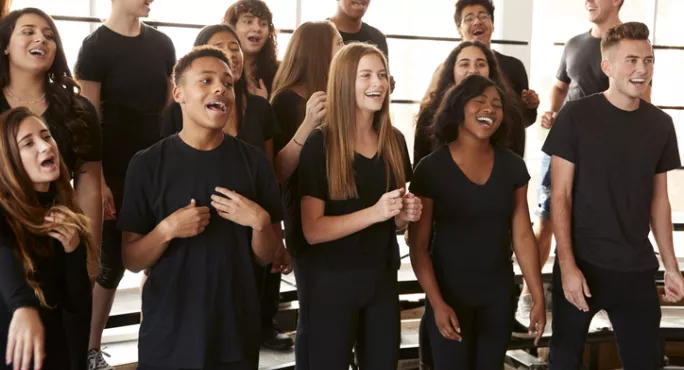Oscar Wilde once said: “I regard the theatre as the greatest of all art forms, the most immediate way in which a human being can share with another the sense of what it is to be a human being”.
In the times that we’re living in, these words ring loudly in my ears.
As a drama teacher in a large FE college, it’s been almost four months since I worked practically with my students. Like everyone in the sector, we adapted swiftly to remote learning, determined to cling on with white knuckles to some sense of creativity, the lifeblood of a drama curriculum.
A few weeks into lockdown, I asked my students how they were faring in this new, virtual world. Most had adapted well, some less so, but the resounding call of their collective voice mourned deeply for the practical element of the A-level drama course and most significantly, for the loss of tangible, physical human interaction.
Spielman: Dropping a GCSE 'may make sense' for some
Long read: 'In challenging times, you see what you're capable of'
Opinion: It's time for bold action on education, skills and jobs
Drama, by its nature, is a social subject. At A level, students typically choose the course because they want to work in an environment that is creative, collaborative and dynamic, perhaps seeking to balance out more deskbound styles of learning. They speak of wanting to be active, to be physical, and to have the time and space to wrestle some of life’s big questions through the shared act of making theatre.
And there's the rub.
I want my students to make theatre to say something about the world in which they live. And that world is currently one that feels strange, disconnected and uncertain. Now, more than ever, young people need to be given a platform to make their voices heard, to share their stories and work through their experiences in ways that feel palpable and real.
Theatre provides that platform. It gives that space. It can be the mouthpiece through which these stories are explored, enacted and communicated.
Theatre as therapy
One of my colleagues likes to remind me that what we offer our students is an education in the performing arts, not a form of therapy. We aren’t trained drama therapists, nor do we have the resources or time to use theatre as an intervention for young people in crisis. He’s right, of course: we are teachers, delivering an educational qualification.
That being said, it would be naive not to recognise the transformative and therapeutic power of an arts education. It is often said that theatre is a form of escapism, a valid definition, but in its most visceral form theatre is also a way of making sense of the world through a shared experience with others. Theatre needs interpreting, and is also an interpretation in itself. With its roots in ritual and the traditions of storytelling, drama remains our most primeval way of expressing and communicating what it means to be human.
It’s not that our students need drama therapy to overcome the experiences of the coronavirus crisis, but rather that we must champion the therapeutic possibilities afforded by a dramatic education.
The performing arts industry is in freefall. Despite the significant contribution made to the economy each year, the creative industries have been left crippled and struggling to see light at the end of the Covid-19 tunnel. So perhaps, then, the recent unearthing of government proposals to narrow GCSE choices in order to allow more time for catch-up learning in maths and English makes sense? After all, what good is a career in the arts if there is no industry left within which to work?
“All the good in the world!” would be my reply.
Young people need theatre, and the theatre needs young people.
The mother of modern theatre, Joan Littlewood, said: “If we don’t get lost, we’ll never find a new route”. Now is not the time for reductive curriculums or the abandonment of the creative subjects in our schools; it is an opportunity to articulate our experiences through engaging in a creative arts education.
It’s true we have much to work through, for who knows what a socially distanced drama lesson will look like, or whether we can replicate the experience of a practical lesson, reframed through a computer screen.
There are challenges ahead indeed.
But we must have hope. The theatre is a spirited and tenacious creature and I remain optimistic that the phoenix will rise from the ashes to renew our appreciation of drama as both experience and expression in times of global and educational crisis.
Beth Curtis is a drama and performing arts lecturer at Exeter College



